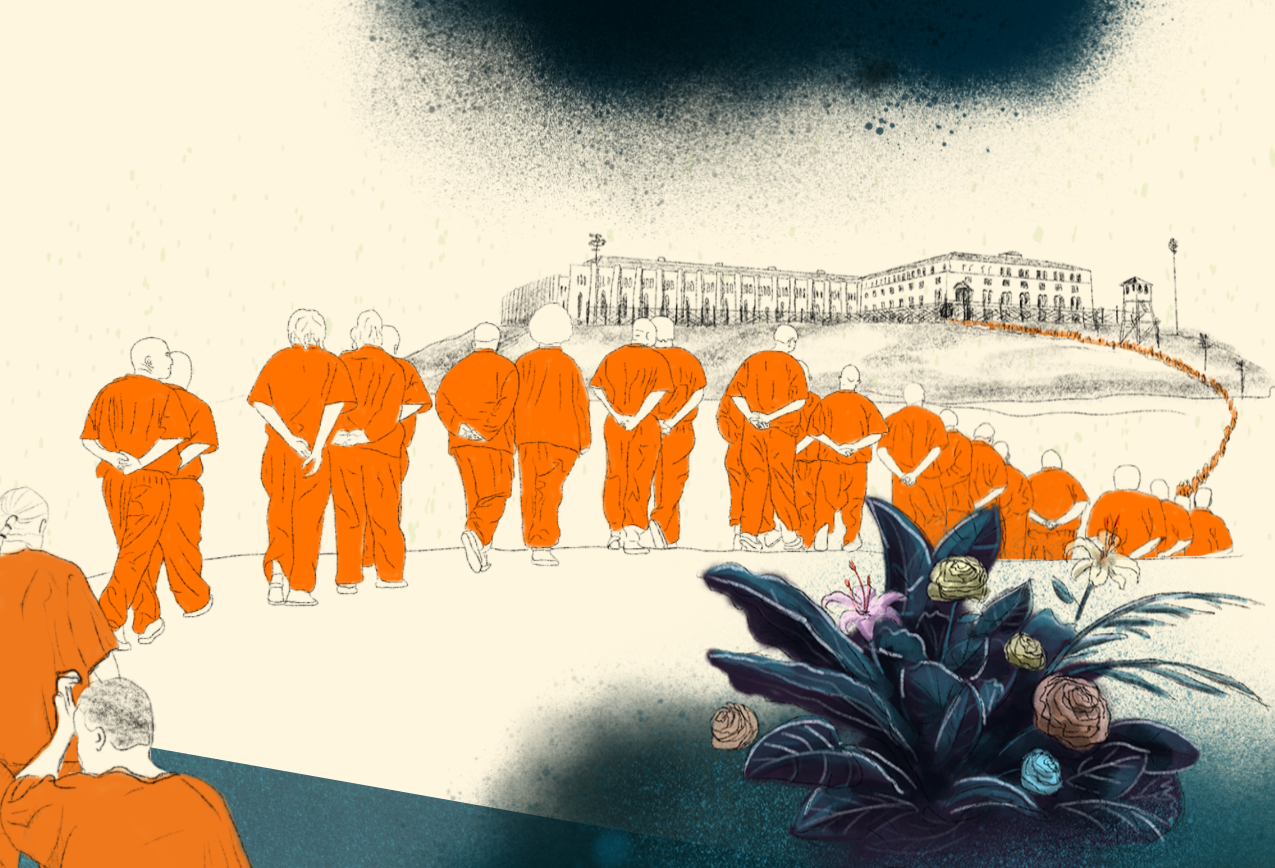
Arizona Leads the Way on Public Safety
Issue Areas
Related Content
Two years ago, we founded the Cicero Institute, a policy group determined to improve the lives of hundreds of millions of Americans. At Cicero, we design policies that increase government transparency and accountability and allow the most innovative ideas to win. Criminal justice reform is one of our key priorities. With 6.4 million Americans incarcerated or on community supervision and another 70 million with a criminal record, effective policy changes have the potential to transform lives across the nation and lift up vulnerable communities.
Too often, policymakers and advocacy groups approach criminal justice reform with specific rehabilitation programs or strategies in mind. This approach is well intentioned but misguided. Programs that work well in one region rarely work as well when scaled to include other regions. The problem with one-size-fits-all programming is intuitive: different communities face different challenges and have unique advantages. Local leaders tend to be far more effective at innovating and tailoring programs to the needs of their communities than are distant bureaucrats and policymakers. This dynamic is why policymakers should create incentive systems that give local leaders the flexibility to experiment and that reward them for achieving desired outcomes.
This year, Arizona’s legislature stood out from the rest of the nation because it adopted this approach to criminal justice and policing policy. As a result, legislators passed two ambitious reforms that translate the philosophy of transparency, accountability, and incentives into practice.
HB2707, sponsored by Rep. Steve Kaiser, revived and improved an innovative program from Arizona’s past. In 2008, Arizona found a way to decrease recidivism, crime, and the size of the state’s prison population. That year, Arizona forecast that its inmate population would increase by 50 percent over ten years, costing the state an extra $2 billion to $3 billion in operating costs. It needed to find a solution before costs spiraled out of control.
Attention fell on probation violations. Arizona was spending over $100 million a year to send about 4,000 people to prison for violating the terms of their probation. Later that year, the Safe Communities Act was passed to incentivize county probation agencies to decrease crime-related and technical violations of probation terms. Counties could collect up to 40 percent of the marginal cost savings to the state when fewer people under their supervision ended up incarcerated. This incentive led to local agencies working with probationers to keep them crime-free and using discretion instead of sending people to prison for minor lapses like missing a meeting.
Predictably, in the first three years, probation violations dropped by 31 percent, and crime fell by 25 percent. But when the recession struck, the legislature never sent the funds it owed the counties for their improved performance. The incentive mechanism stagnated.
Now, Rep. Kaiser’s bill will help probation departments across the state rebuild momentum behind ideas that work at the local level. By increasing the portion of marginal cost savings returned to probation offices to 75 percent, improvements should be even more impressive this time around. And with continued performance funding from the legislature, a virtuous cycle of improved outcomes should emerge from local agencies’ investment in new technology, officer retention, and expanded services. As Rep. Kaiser wrote in March, “The evidence is clear—incentives can jumpstart Arizona’s stagnant probation system and drive better outcomes for decades to come.”
Rep. Walt Blackman brought the same principles of transparency and accountability to policing policy. He saw that few police departments track and publish data on use-of-force incidents in their communities, leaving the public, other departments, and even their own leaders in the dark. As a result, the public is susceptible to misleading reports in the media and police departments have no empirical way to compare the effectiveness of use-of-force policies or strategies.
Rep. Blackman’s bill, HB2168, creates a statewide police use-of-force database. This database does not include information on specific officers, rather department-level summaries on demographics, the types of force used, and the situations that resulted in use of force. Modeled on the FBI’s National Use-of-Force Collection, this state database will help improve trust in policing much more than the federal one, which only releases national summaries. Policing is local, and there is great variance between and even within states in terms of the challenges departments face. As challenges vary, so does performance in dealing with them.
Civilians will use this database to contextualize the national conversation about policing against the realities in their own communities. Police departments will be able to track and compare their use-of-force rates with those of peer communities, allowing them to learn from the success of other departments and experiment with new policies. As Rep. Blackman wrote this March, “Local data is crucial to determining which departments have recurring problems with use of force, and which departments are being unfairly tarnished.”
These two reforms exemplify effective policymaking, and Rep. Kaiser and Rep. Blackman exemplify what at Cicero we call the difference between good leaders and great leaders. Good leaders find programs or strategies that work in one place and copy and paste them to other places. Great leaders, like these two legislators, design systems that have clear incentives so that local leaders are free to adapt and are rewarded for successfully achieving the outcomes that the public wants most.
Other states should emulate Arizona’s example. And there remains further opportunity for Arizona to build off its own recent success. For example, legislators should improve Arizona’s probation earned-time credit system—which subtracts time off probationers’ sentences when they comply with supervision—by tying the credits to a more desirable outcome, like stable employment. Stable employment is shown to consistently and substantially lower the risk of recidivism. Using earned-time credits to incentivize the most desirable outcomes for people on probation would double down on Arizona’s approach to probation reform and make Arizona a safer place for everyone.
Legislators should also turn their attention to Arizona’s prisons. Policymakers can foster innovative approaches to rehabilitation by tracking recidivism rates for specific prisons and cohorts of incarcerated people, creating clear incentives for correctional staff to improve each prison’s performance. Policymakers can start by incorporating data collection standards and performance-based incentives into Arizona’s six contracts with privately-managed correctional facilities.
The Cicero team looks forward to supporting the efforts of other great leaders in Arizona to bring more innovative policy solutions to the criminal justice field and other policy areas like healthcare, higher education, and homelessness.

Stay Informed
Sign up to receive updates about our fight for policies at the state level that restore liberty through transparency and accountability in American governance.
